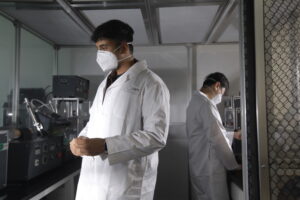Corporate social responsibility (CSR) is the practice by which a corporation incorporates sustainability into their business model. These practices often include social, economic, and environmental considerations. In other words, it’s how companies practice being good citizens.
Though this may sound simple enough, creating sustainable practices at corporate scale takes considerable effort, planning, and strategy. Many companies turn to events and conferences to gain valuable training and insight into industry-leading practices.
For example, the From Day One (FD1) Conference specializes in helping companies build a corporate value structure.
This structure creates a foundation from which all other aspects of corporate identity can blossom. The conference gives corporate leadership the opportunity to improve communication around diversity, responsibility, and transparency by offering workshops and panels from industry-leading executives.
This is a mission that’s becoming increasingly important to forward-looking companies. Sustainability isn’t just about environmentalism, it’s also about creating a corporate structure that’s equipped for longevity.
Team Building
Part of that longevity is building strong relationships with staff and creating a space where they feel heard, cared for, and supported. Google Boulder’s Engineering Site Director Bhavna Chhabra spoke about the importance of team-building and psychological safety during her presentation at the 2019 FD1 Conference in Denver.
“Psychological safety is about team members being able to take risks and be vulnerable to each other. That’s a very important factor in building a healthy team,” notes Chhabra.
Creating psychological safety within corporate culture is key to fostering innovation. New developments can often seem outlandish, risky, or downright foolish when first discussed. It’s only through trust and respect that these ideas can be properly developed.
Chabbra also reiterated the value of staff retention. “A healthy team is one that retains employees. It’s very expensive for us to have turnover. When employees leave they take knowledge with them… so retention is really important.”
Another key component of team building is staff feedback. Google often sends out employee surveys, requesting feedback on management, business practices, and overall satisfaction. These surveys offer executives the opportunity to learn from mistakes and improve based on precise data.
The Google site director was also quick to note that feedback isn’t always positive. Negative input can be difficult to hear, but often leads to more productivity and greater cooperation among staff.
In 2008, Google developed Project Oxygen, a study to determine if teams perform better or worse with managerial oversight.
They found there are 10 (originally eight) characteristics that contribute to effective management. More importantly, they determined that performance appraisals, employee surveys, and staff feedback are pivotal in creating an effective management style.
Hiring
Many businesses are also seeking insight into hiring and staff retention. Millennial and Generation Z hires require a different approach than traditional hires. Surprisingly, many people within those demographics are more concerned with their societal impact than with how much money they’re making.

During an FD1 breakout session, CEO and Founder of Accelerist Brittany Hill shared how channeling energy from these socially-aware demographics can help bolster CSR and create higher levels of staff engagement.
Millenial and Gen Z staff are highly attuned to social issues and more importantly, they’re eager to make a difference. How can employers capitalize on that enthusiasm? Some have turned to gamification. Turning participation into a game can have stunning results with clear outcomes.
Hill shared an example from Siemens in which the company asked 45 employees to use an app called Own Your Own CO2.
The game asks users to click a button each time they perform a sustainable action, like recycling a sheet of paper or bringing their own coffee mug to the coffee shop and then rewards them for participation.
Rewards could be as simple as a high five or as significant as an extra vacation day.
During their trial with the game, Siemens saved 26,000 liters of water and deterred 2,700 kg of CO2 from entering the atmosphere.
Participants could clearly see the results of their actions and the company was able to publicly boast about their efforts. More importantly, their staff members felt they were making a positive impact on society and reported more overall satisfaction with their work environments.
Communication, Diversity, and Inclusion
Hiring a diverse staff is just the first step in creating a culturally diverse workforce. Creating a corporate culture of inclusion and acceptance is crucial to staff retention and internal innovation.
While the tech world isn’t often lauded for its diversity, women, people of color, queer, and transgender people are taking on more roles within the industry. The importance of allyship and communication has never been greater.
Effective communication across differences can be challenging. Training courses in allyship are growing in popularity and can help staff to advocate on behalf of others and stand up for themselves when uncomfortable situations arise in the workplace.
Diversity, Equity, and Inclusion Consultant Willie L. Jackson hosted a rousing workshop at FD1 focused on fostering critical conversations about difference and equality.
By creating a safe space for participants to discuss their experiences, both positive and negative, surrounding workplace gender and race culture, the workshop fostered some fascinating conversations.
Participants seemed to feel invigorated by the opportunity to talk about the mistakes they’ve made when dealing with sensitive topics. Others seemed relieved to share how they were impacted by race or gender insensitivity.
Ultimately, everyone seemed to walk away from the workshop with more tools to address difficult conversations and more importantly, with a greater respect for one another.
This type of training can foster stronger relationships and a greater sense of inclusion in the workplace.
Ultimately, every business wants to have a happy, healthy staff, and every employee wants a fun, rewarding workspace.
Perhaps Chabbra said it best during her panel, “Healthy teams deliver on time. Healthy teams innovate. Healthy teams have more fun, and we [at Google] are all about working hard and having fun.”











